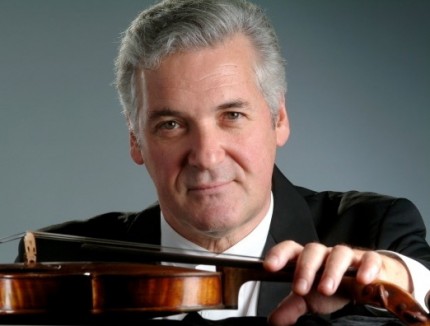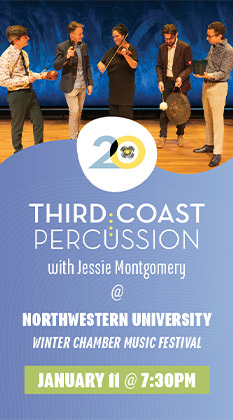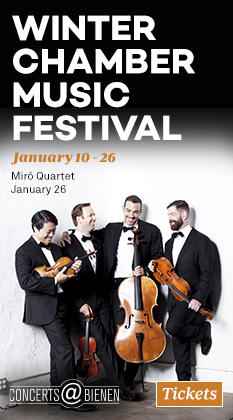Sparks are few in Zukerman’s CSO program
Triple-threat Pinchas Zukerman joined a reduced Chicago Symphony Orchestra Thursday night at Orchestra Hall for a program consisting of three Baroque concertos sandwiched between two Mozart orchestral works in E flat major.
The concert offered an intermittently tasty meal, with performances that showed a sure and experienced hand. But there was nothing revelatory in the interpretations and the violinist’s idiosyncratic sound continues to enthrall his admirers as much as it puzzles his detractors.
Now in his late 60’s, Zukerman’s chops seem fully intact, though the program was not a particularly stern test. The violinist’s antipathy to historically informed performance practice is legendary, and over the years his approach to Baroque and Classical era music has seemed increasingly anachronistic in a musical culture that has, in varying degrees, absorbed many important lessons from early music specialists. One might have expected him by this point to narrow his repertoire to the 19th and 20th century music that is a better fit for his sound, but the Israeli violinist/violist soldiers on, gamely insisting that his viewpoints are equally valid in music from all eras.
His trademark sound, instantly recognizable to fans of fiddle playing, is heavy and richly caloric, with vibrato that is virtually constant even in relatively fast passages. There is little difference in his sonic profile whether the subject is Brahms or Bach, and the latter’s beloved Concerto for Two Violins received the expected lugubrious overview.
Under most circumstances Stephanie Jeong’s sound would not be labeled slender, but when heard alongside Zukerman, any violinist is likely to sound airy by comparison. Once sensed that the CSO associate concertmaster was trying to find common ground with him, but her sonic profile nevertheless remained distinct. These differences worked to their advantage, adding a spark of rhetorical conflict that was a refreshing antidote to the routine interpretations heard elsewhere.
The one oddity on the program was Tartini’s Pastorale for violin and strings, orchestrated by Ottorino Respighi. In their 125th anniversary year, the CSO has been taking program cues from their historical record, and in 1927 this endearing confection was both the first work of Tartini ever performed by the orchestra, and a reflection of conductor Frederick Stock’s affinity for the contemporary Italian composer.
Zukerman’s attention to phrasing was more apparent than in the other works, and his chords and double stops were deftly rendered. On occasion his attacks were rough and wiry, stunting the lyrical flow and distracting from the otherwise neatly delivered passagework.
Switching instruments, Zukerman coaxed some lovely hushed passages from the ensemble in Telemann’s Viola Concerto in G Major, and the final Presto was lively and propulsive. But even some judicious ornamentation couldn’t rescue a performance marred by square phrasing and auto-pilot sound production.
The program began and ended with two Mozart works in E flat major, a key ripe with Masonic symbolism for the composer. After a few minor ensemble issues in the opening measures, conductor and orchestra settled in for a spirited reading of the Overture to The Magic Flute. Zukerman’s odd decision to minimize the famous fermatas robbed the work of mystery, but fine solo turns by flutist Richard Graef and clarinetist Stephen Williamson made for an otherwise engaging performance.
The orchestra was in fine form for the Symphony No. 39 in E flat major, even if the conductor’s direction failed to plumb the work’s considerable depths. His one moment of risk came in a brief, forced slowdown midway through the first movement, a tactic that seemed to leave the players flat footed. The minuet was inviting if a bit heavy handed, and the zippy finale provide a peppy jolt that was sorely lacking through much of the evening.
The program will be repeated 8 p.m. Friday and Saturday. CSO.org; 312-294-3000.
Posted in Performances



Posted Nov 21, 2015 at 2:58 am by Paul Cohan
There are a lot of exciting things going on in Baroque music. Not here. The Orchestra needs more of a challenge than Mr. Zukerman seems willing to muster. On to The Messiah.